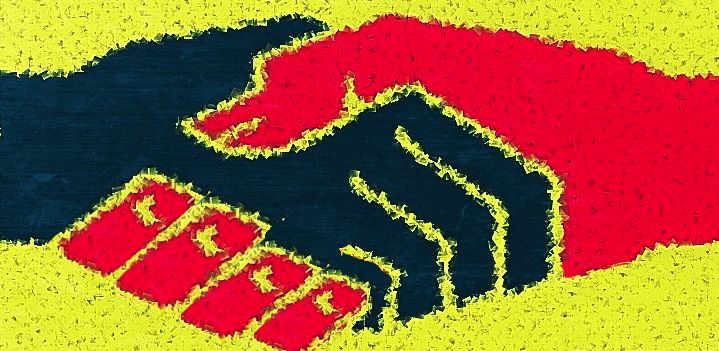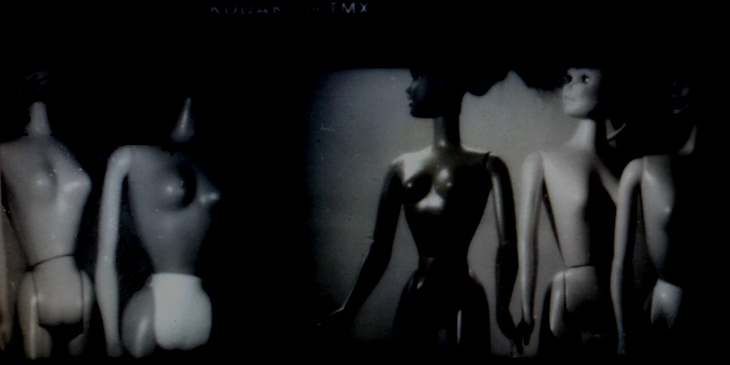Sartre Does God
Kate Kirkpatrick on the variety of atheisms
Jean-Paul Sartre was one of the twentieth century’s most famous atheists.
This sentence may look simple enough, but what the word ‘atheist’ means here is not.
In 1945 Sartre proclaimed that existentialism was a humanism—a vision of a brave, new, godless world. Sartre was forty-years old when, that October, he gave his now-famous lecture at Club Maintenant. And it came as a surprise to those who knew him, since over the previous two decades Sartre repeatedly expressed disdain for humanism, which he thought expressed false optimism about humanity and the value of the human. For the early Sartre—the Sartre of the phenomenological period and Being and Nothingness—atheism was not a humanism. But neither was it the atheism of twentieth-century Anglophone philosophy of religion. Sartre’s objection to God was not Bertrand Russell’s: ‘Not enough evidence!’.
So what was it? There are two ways of answering this question: biographical and philosophical. Following my argument in Sartre and Theology, I briefly consider the first before turning to the second.
Given Sartre’s prolific output—which the Economist once calculated as twenty published pages per day of his working life—his life was extraordinarily well documented. In addition to his memoir, Words, he left several autobiographical notebooks and diaries, as well as letters to and from Simone de Beauvoir and other friends and lovers. Recently published manuscripts in French have shown that Sartre was intimately familiar with theological debates concerning free will and the determinisms known in theological idiom as sin and grace. He was a student of Descartes and Malebranche, as well as Jansen, Pascal, and Fénelon, but the English-speaking reception of Sartre has overlooked significant aspects of his intellectual formation, reading him in the half-light of a history of philosophy divorced from its theological interlocutors. That one of the twentieth century’s most notorious atheists should have engaged to such an extent with theology will come as a surprise to many. Sartre’s atheist philosophy, as expressed in Being and Nothingness, involved a rejection of a particular kind of Christian theism, and the role theology played in the formation of his philosophy has not had due consideration.
All the same, the biography of Sartre’s atheism is far from clear cut: in Words alone he tells three different stories about its origins. In Being and Nothingness he describes himself as having had a ‘mystic crisis’ in his teens; and in his autobiography he refers to the ‘absence’ of God rather than God’s non-existence. In the same work he also refers to God as an ‘old flame’ and to atheism as a ‘cruel, long-term business’.
Philosophically, Sartre’s argument for atheism was not very satisfying—even for him. He gave a short argument against God’s existence in Being and Nothingness. But he confessed to Simone de Beauvoir that this argument was not the basis of his own atheism; rather, this atheism was something more direct, an intuition of the absence of God.
The young Sartre was an enthusiastic reader of Nietzsche, and in a 1943 essay entitled ‘A New Mystic’, Sartre wrote that ‘God is dead’. But, he clarified:
We should not understand by that that He does not exist, nor even that he now no longer exists. He is dead: he used to speak to us and he has fallen silent, we now touch only his corpse.
Such language can be alienating for some readers: what does he mean by this? It is not atheism, insofar as we define atheism as disbelief or lack of belief in the existence of a God or gods. As Sartre defined it in Existentialism Is a Humanism, his philosophical project was to develop ‘a consistent atheist position’. But metaphysical claims about God’s existence interested him less than the role belief in God played in human experience—especially with respect to freedom. On his view, all human beings long for a clear-sighted witness to see our true selves and to promise the justice we can’t see in this world. We can take refuge in the idea of God, to escape the brute fact that we may never be truly seen by another and that justice may never come. Faith in God is one of the many ways that human beings avoid freedom and responsibility: in short, Sartre says, faith in God is bad faith.
I argue that Sartre explicitly adopts his theological terminology not only from Hegel and Heidegger, but from seventeenth-century French debates concerning the nature of freedom that he met much earlier in his life and knew more intimately. The agrégation in philosophy required a thorough knowledge of the history of French philosophy prior to 1800, where discussion of freedom was inseparable from debates about the implications of different Christian conceptions of grace and sin, and employed terms inherited from Saint Augustine and re-purposed by Descartes and many others: Being and Nothingness. Neither were these theological issues confined to university discourse: they affected court life, royal and revolutionary history, and perhaps most importantly for Sartre, they affected literature, becoming the subject of polemic in Pascal, tragedy in Racine, and satire in Voltaire. As a result, along with many theists and atheists alike, Sartre was preoccupied by the problem of evil and the cognate problem of freedom.
What is more, Sartre’s treatment of theological themes drew considerable discussion in twentieth-century theology. The final part of Sartre and Theology shows that many prominent Christian theologians—from the Protestant, Catholic, Orthodox, and Liberation traditions—engaged with Sartre’s philosophy in their work, not only as an atheism with which to disagree but as a thinker from whom they could learn. The book includes discussions of Karl Barth, Paul Tillich, Gabriel Marcel, Karol Wojtyła (better known as Pope Jean Paul II), Christos Yannaras, John Zizioulas, and James H. Cone.
All of these thinkers drew in particular on Sartre’s account of objectification—the tendency of human beings to reduce others to objects, to define them by one misjudged act or a feature of their body such as their skin or their sex. Sartre’s position involved admitting that human beings are subject to each other’s objectifying gazes, and that there is no God’s-eye view from which to see things as they ‘really are’. Theologians took Sartre’s account as supporting evidence that human beings have fallen—that we are estranged from God and each other.
Some of the theologians I discuss were writing from positions of privilege, at a comfortable distance from the sharp end of this problem. But in late 1960s America, the black liberation theologian James H. Cone applied Sartre’s insights about objectification and liberation to the situation of black Americans. Cone asked: ‘How should I respond to a world that defines me as a nonperson? The black man knows that he is a person. But when he attempts to relate to the world as such, the world “demands that he respond as a thing”’.
Sartre’s applied existentialism, including his support of Frantz Fanon and Albert Memmi, is well known. But the religious application of his thought, like its religious roots, is not. In Words Sartre described ‘the atheist’ as ‘a man with a phobia about God who saw his absence everywhere and who could not open his mouth without saying his name’. Whether or not he intended this to apply to himself, my book shows the ways Sartre drew on theological thinkers and themes in his early work, especially in Being and Nothingness and Existentialism Is a Humanism. The idea of God—whether God exists or not—had a profound influence on Sartre’s philosophy. And this philosophy was not formed in an irreligious cloister—it met, engaged with, and inspired theology. A precise definition of his atheism may be elusive. But given that Greek Orthodox theologian Christos Yannaras considers Sartre ‘the most important theologian of the West’s philosophical tradition’, it is time to acknowledge the under-studied theological aspects of Sartre’s work.
The Source Code
This essay is based on the book Sartre and Theology by Kate Kirkpatrick (Bloomsbury, 2017).







2 Comments